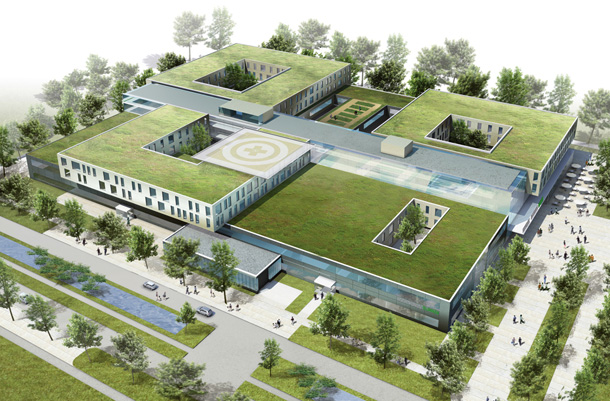Research finds evidence-based & 'green' design mostly compatible

Mardelle Shepley
Evidence-based design and eco-effective, or sustainable, design are fundamentally compatible despite some conflicts, concluded Mardelle Shepley, professor of architecture of Texas A&M, in a research paper she’s presenting this May at a conference in Beijing, China.
Shepley, director of the [Center for Health Systems & Design] (http://archone.tamu.edu/chsd/) , is scheduled to present her research at China’s first healthcare construction conference, [Hospital Build China Exhibition and Congress] (http://www.hospitalbuildchina.com/) , to be held May 19-21 in China’s capital city.
Shepley’s findings culminated a multistage research project eying collaborative research on evidence-based and sustainable healthcare design.
First, researchers held focus groups with practitioners who specialize in evidence-based design and eco-effective design to identify critical questions that were translated into a survey. Next, researchers and practitioners who specialize in each of these fields were asked to identify healthcare facilities that represent best practices. Finally, administrators who had been involved in the design process at each of these best-practice institutions were asked to respond to the survey.
“Historically, topics for research into the conflict between the two approaches have been generated from within academia,” said Shepley. “More recently, designers who are aware of the meaning and implications of evidence-based design are sharing their informational needs with researchers and engaging in cooperative research efforts.”
The conference aims to provide major hospital construction project investors, agents, sponsors and managers with an interactive exchange platform among leading suppliers of investment, plan, design, construction, operation, equipment and management services.
Previous post
Tags
- architecture
- building a better texas
- chsd gallery
- events
- global college
- health systems & design
- lectures
- research
- sustainability
- wellness
Related Posts

College symposium spotlights faculty research Oct. 24

Oct. 29 symposium spotlights college, faculty research

Oct. 23 symposium spotlighted college, faculty research
Students imagine healthcare design, research center
Lecture series eyes design solutions for under & uninsured
Follow Us
Facebook Twitter Vimeo Youtube Flickr RSS
Recent Posts

Planning prof heads study of disaster housing aid

A message from the dean

Former student remembered as expert planner

Leading educator named new head of Architecture Dept.





_thumbnail_small.png)
